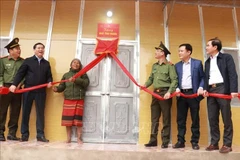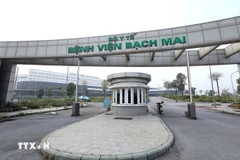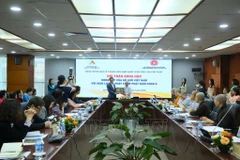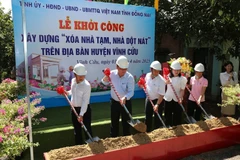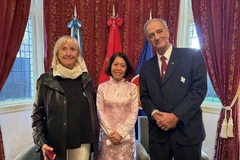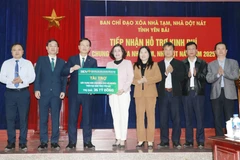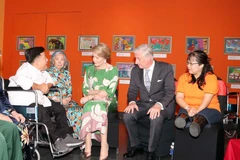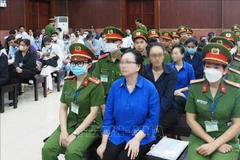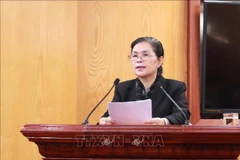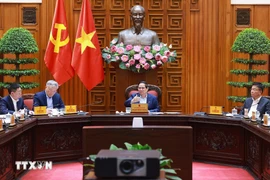At a policy forum heldin Hanoi on January 29, officials explained that the new target was setin the context of ethnic minorities making up 56 percent total numberof poor households in the country.
This was the case despite alot of policies on ethnic minority development issued by the Governmentover the last few decades, said Danh Ut, Vice Chairman of NationalAssembly's Ethnic Minority Council.
According to the Ministry of Labour, Invalid and Social Affairs, the country has about 1.8 million poor households at present.
Anothergoal of the new plan is to decrease the number of illiterate ethnicminority citizens by 1.5-2 percent every year, said Nguyen Cao Thinh, anofficial with the Government's Committee for Ethnic Minority Affairs.
Thinh said that an estimated 17.2 per cent of ethnic minority citizens above 10 years old are illiterate.
Vietnam has over 8 million ethnic minority citizens spread over mountainous areas stretching from the north to the south.
Utsaid the situation can be blamed on "asynchronous policies" and othershortcomings in policymaking, including the failure to consult andgather opinions of ethnic minorities before issuing a policy.
Overlaps in managing and implementing the policies worsened the situation, he said.
TheGovernment should gather ideas from ethnic minorities before comingwith policies and programmes specifically targeting their socio-economicdevelopment, he added.
Nguyen The Hoang, another official withthe Government's Committee for Ethnic Minority Affairs, suggested that aseparate Law on Ethnicity be drafted and submitted to the NationalAssembly.
He also "strongly" recommended serious considerationbe given to submitting to the parliament a proposal for establishing aMinistry for Ethnic Minority Affairs.
He said he hopes that such steps will prove effective in meeting the new five-year ethnic minority development targets.
UnitedNations Resident Coordinator Pratibha Mehta said Vietnam'sinternationally recognised success, which has transformed the lives ofmillions of Vietnamese over the last 30 years, has not yet been sharedby everyone.
In spite of commendable efforts and allocation ofconsiderable resources, achievements related to ethnic minoritycommunities in poverty reduction and meeting other millenniumdevelopment goals lagged far behind the rest of the nation, she said.
"This is most clear in relation to poverty, where more than half the remaining poor come from minorities groups," she said.
Viablestrategies for poverty eradication and rapid catching up of developmentin minority areas must become a central theme of the 2016-20 nationalsocio-economic development plan, she said.
The annual forum,which was established in 2008, was co-hosted by the Committee for EthnicMinority Affairs and the United Nations Development Programme.
Itseeks to provide opportunities for Government agencies andinternational and local non-governmental organisations to discuss allaspects of ethnic minority affairs.
The main themes of thisyear's forum was mainstreaming ethnic minority development in the newfive-year national socio-economic development plan's policy framework.-VNA



